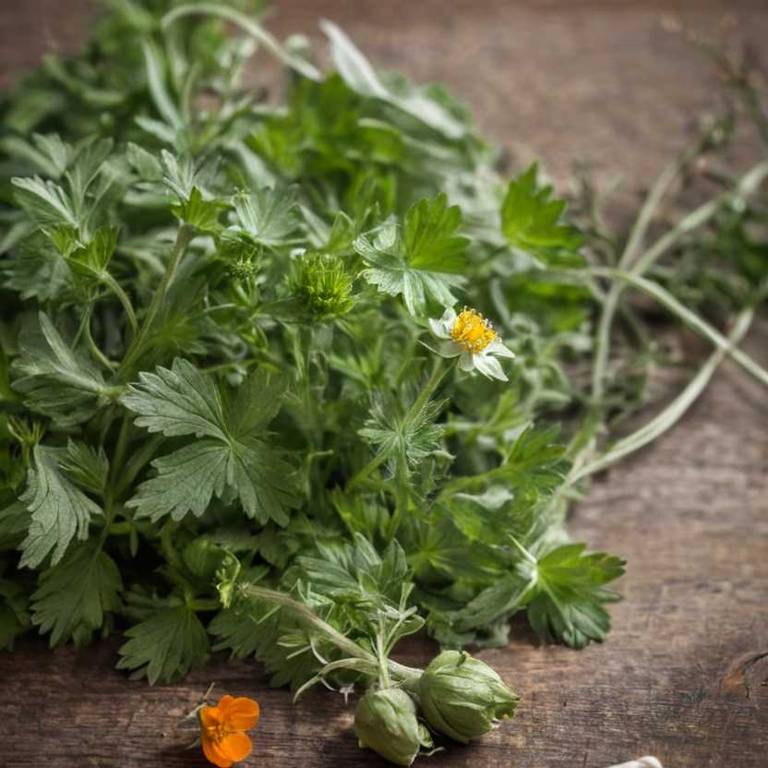Common Avens (Geum urbanum)
Common Avens (Geum urbanum) is a member of the Rosaceae family, native to Northern Europe, and North America. Traditionally, its roots, rhizomes, and leaves have been used for decoctions, infusions, and poultices.
This herb is particularly valued for its astringent, anti-inflammatory, and diuretic actions, and has a long history of use in european herbal medicine, mediterranean herbal traditions, and native american herbal medicine.

Quick Facts / Key Information
| Common Name | Common Avens |
|---|---|
| Scientific Name | Geum urbanum |
| Plant Family | Rosaceae |
| Genus | Geum |
| Species | urbanum |
| Native Range | Northern Europe, North America |
| Plant Parts Used | Roots, Rhizomes, Leaves |
| Primary Medicinal Actions | Astringent, Anti-Inflammatory, Diuretic |
| Primary Traditional Systems | European Herbal Medicine, Mediterranean Herbal Traditions, Native American Herbal Medicine |
| Historical Preparation Methods | Decoction, Infusion, Poultice |
Botanical Identity
- Scientific Name
- Geum urbanum
- Common Name
- Common Avens
- Synonyms / Alternative Names
- Field Avens, Common St John'S Wort, Cuckoo'S Cradle
- Plant Family
- Rosaceae
- Genus
- Geum
Botanical Description
- Growth Habit
- Perennial herbaceous plant.
- Height
- It typically reaches a height of 20 to 60 centimeters.
- Leaves
- Broad leaves with upper surface green and lower surface gray-green, bearing distinct stomatal bands along the midrib.
- Flowers
- Flowers are white to pale yellow, arranged in solitary umbels, actinomorphic, with five ovate petals and a central yellow disk.
- Stems
- Erect, branched, herbaceous stems with opposite decussate leaves and hairy surfaces.
Traditional Uses / Historical Use
Traditional Systems
- European Herbal Medicine
- Mediterranean Herbal Traditions
Historical Preparation Methods
- Decoction
- Infusion
- Poultice
- Powder
Medicinal Actions
- Astringent
- As described in traditional systems, a calming astringent, for skin-related applications.
- Anti-inflammatory
- Traditionally described as a warming anti-inflammatory, for general calming applications.
- Diuretic
- Commonly referenced as a gentle diuretic, in fluid-regulation contexts.
- Tonic
- In herbal literature, noted as a mild tonic, in whole-system applications.
Active Compounds
- Tannin
- High-molecular-weight phenolic compounds found in many plant species.
- Flavonoid
- Naturally occurring polyphenols that contribute to pigmentation and structural chemistry.
- Phenolic Acid
- Organic acids commonly occurring as part of plant secondary metabolism.
- Coumarin
- Organic compounds biosynthesized as part of plant secondary metabolism.
Modern Research Overview
Scientific research related to this plant is ongoing. This section will be expanded in the future to include summaries of phytochemical studies, laboratory research, and other relevant scientific literature as it becomes available.
Safety & Contraindications
- General Precautions
- Reports outlining specific general precautions for this herb are limited.
- Contraindications
- Available information does not clearly establish contraindications for the use of this herb.
- Allergies
- Allergic reactions associated with this herb have not been well documented.
- Drug Interactions
- Interactions between this herb and prescription medications are not clearly established.
- Toxicity
- The toxicity profile of this herb has not been clearly established.
- Pregnancy & Breastfeeding
- Information addressing pregnancy and breastfeeding-related safety for this herb is limited.
Preparation & Usage Methods
- Infusion
- A preparation method involving steeping plant material in heated water for a short period.
- Decoction
- This method uses sustained heat to extract compounds from firm plant structures.
- Poultice
- Plant parts are crushed or moistened and placed directly on the body.
- Powder
- Powdered preparations use finely milled plant parts.
- Tincture
- A preparation involving soaking plant parts in alcohol for extended extraction.
Growing, Harvesting & Storage
Growing / Cultivation
- Soil
- Prefers loamy soil with moderately well-drained conditions. Typically grows best in moderate fertility soils.
- Sunlight
- Thrives in partial shade. Tolerates full sun to partial shade.
- Watering
- Prefers moist soils. Tolerates variable moisture levels.
Medical Disclaimer
The information provided on this page is for educational and informational purposes only. It is not intended to diagnose, treat, cure, or prevent any medical condition. Always consult a qualified healthcare professional before using any herb for medicinal purposes.